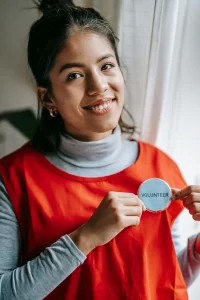 Not surprisingly, apocalyptic movies are not my bag. When I read about the new blockbuster arriving in theaters this week, it got me thinking about why dystopian stories – whether fantastical or realistic – don’t ring my chimes much. If anything, I gravitate to narratives that validate my sense of humanity. I want to recapture the feelings of joy and wonder I experienced in my college Humanities classes– Innovation! Creativity! Beauty! Curiosity! Exploration! Human endeavors for the greater good always captivated me and still do. So, I feel fortunate that I found my way to a career in the not-for-profit sector that lets me experience and enjoy first-hand the best in people, and the many gifts that they can and want to offer: in a word, volunteers.
Not surprisingly, apocalyptic movies are not my bag. When I read about the new blockbuster arriving in theaters this week, it got me thinking about why dystopian stories – whether fantastical or realistic – don’t ring my chimes much. If anything, I gravitate to narratives that validate my sense of humanity. I want to recapture the feelings of joy and wonder I experienced in my college Humanities classes– Innovation! Creativity! Beauty! Curiosity! Exploration! Human endeavors for the greater good always captivated me and still do. So, I feel fortunate that I found my way to a career in the not-for-profit sector that lets me experience and enjoy first-hand the best in people, and the many gifts that they can and want to offer: in a word, volunteers.
“Voluntarism” as we know it today is essentially an American concept, but the promotion and elevation of this human behavior has been around since the beginning of time. Helping a fellow human being, with no expectation in return, has been a key tenet in religions for centuries. Acts of kindness, generosity, sacrifice, and service are central themes in spiritual and cultural traditions around the world. However, the French political scientist Alexis de Tocqueville who traveled to the United States in the mid nineteenth century, was famous for identifying what is this uniquely American phenomenon: “as soon as several inhabitants have taken an opinion or an idea they wish to promote in society, they seek each other out and unite together once they have made contact. From that moment, they are no longer isolated but have become a power seen from afar whose activities serve as an example and whose words are heeded.” Volunteering was, and is, foundational to our democracy and civic life. Arguably, this desire to band and bond together for the greater good is the “connective tissue” of our body politic.
On the flip side, “voluntarism” nowadays can sometimes feel like a mirror of capitalistic values, those of profit, power, status, and personal benefit. A case can be made that the spirit of giving selflessly has lost ground to more transactional and self-interested motives i.e., service for credit, for prestige, for embellishing a college application, for example. Also concerning is that the rates of “formal” volunteering – activities carried out in partnership with nonprofits, organizations, and groups – have been declining in the last decade.
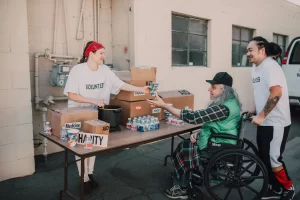 Yet despite these tensions and concerns, my personal and anecdotal experience confirms my preconceived idea that most people are generally good at heart – and want to do good deeds, feel a sense of purpose, and make their communities stronger. And this offers me comfort – especially now, in this challenging time when our democracy feels fragile and more vulnerable. There’s no question that we are now living in a world that is increasingly partisan, fractious, violent, angry, and noisy – and with a media landscape that makes sure we hear about the misery around the clock. Couple that with the psychological phenomenon we humans can’t shake – negative bias – it’s a wonder any one of us can get out of bed in the morning. Yet we do – because there are meals to be delivered, affordable housing to be built, children to be tutored, shelter dogs to be walked, and the list goes on.
Yet despite these tensions and concerns, my personal and anecdotal experience confirms my preconceived idea that most people are generally good at heart – and want to do good deeds, feel a sense of purpose, and make their communities stronger. And this offers me comfort – especially now, in this challenging time when our democracy feels fragile and more vulnerable. There’s no question that we are now living in a world that is increasingly partisan, fractious, violent, angry, and noisy – and with a media landscape that makes sure we hear about the misery around the clock. Couple that with the psychological phenomenon we humans can’t shake – negative bias – it’s a wonder any one of us can get out of bed in the morning. Yet we do – because there are meals to be delivered, affordable housing to be built, children to be tutored, shelter dogs to be walked, and the list goes on.
According to Philanthropy Roundtable, about 1/3 of the nonprofit workforce is made of volunteers. At the height of the pandemic, almost 61 million Americans formally volunteered with organizations and groups. Even more astonishingly, 124.7 million Americans informally volunteered (supporting neighbors, friends, and co-workers on an individual level.) Locally, having worked alongside volunteers here in the Princeton community for more than 16 years, I can say with confidence that a desire to live in a robust, vibrant community is highly valued, and feelings of commitment and caring run deep. We are fortunate to have people with the passion, resources, and skills to pitch in. I can offer truckloads of highly unscientific evidence of this dedication with my trove of personal stories: board chairs, working fulltime in demanding jobs, reorganizing their packed schedules at a moment’s notice when needed, taking my calls at the end of a long day to resolve a complex issue, or on one memorable occasion, physically moving the contents of my office from one building to another (that’s devotion!). I got to know dozens of patient and passionate YMCA volunteer basketball coaches who taught lessons of sportsmanship and teamwork to children, just as Jim Naismith, the game’s inventor, had envisioned when he hung up peach baskets more than a century ago.
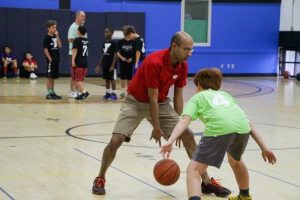 Another benefit to volunteering, sometimes taken for granted and certainly harder to quantify, is the meaningful relationships that develop and deepen among us. Working side by side with shared purpose and vision, we learn from one another and often make enduring friendships with people we might not otherwise ever meet or get to know. These “ties that bind” are what undergird and strengthen a community – and create a place where trust grows, unity strengthens, and even if there’s a difference of opinion, civility is the norm.
Another benefit to volunteering, sometimes taken for granted and certainly harder to quantify, is the meaningful relationships that develop and deepen among us. Working side by side with shared purpose and vision, we learn from one another and often make enduring friendships with people we might not otherwise ever meet or get to know. These “ties that bind” are what undergird and strengthen a community – and create a place where trust grows, unity strengthens, and even if there’s a difference of opinion, civility is the norm.
Call me naïve, an eternal optimist, or worse yet – an idealist! – I can’t help but believe that while our country is at a serious crossroads and dark forces mustn’t be ignored, we should continue to “seek each other out and unite together” to preserve the American tradition that de Tocqueville celebrated. Anthropologist Margaret Mead famously said, “Never doubt that a small group of thoughtful, committed citizens can change the world: indeed, it’s the only thing that ever has.” Coming from an acclaimed social scientist and a rational observer of human behavior, these words are even more powerful.
Pick your cause. Resist the negative bias. Lend a hand. Guaranteed, you’ll feel better – and maybe, like me, skip the multiplex this weekend.
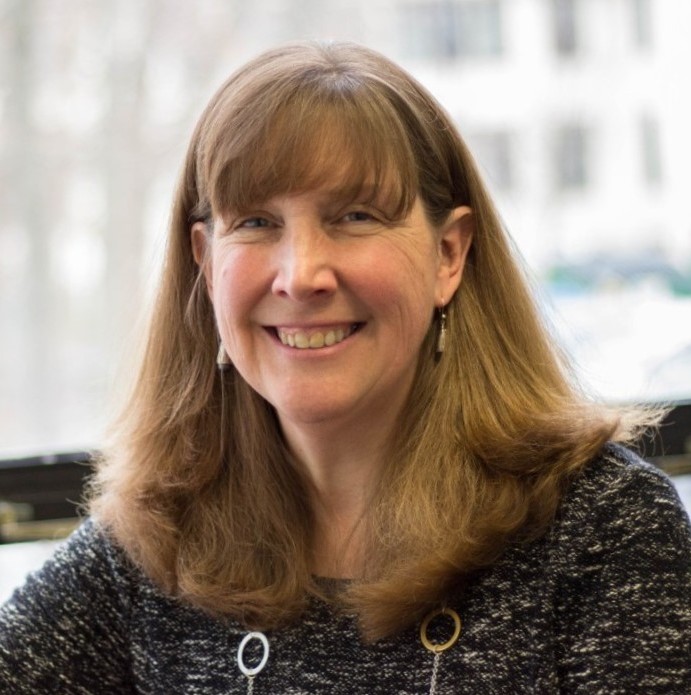
Kate Bech is a nonprofit executive with more than 35 years in the sector. She served as the CEO of the Princeton Family YMCA from 2007 to 2022 and is now the Director of Mission Advancement with Princeton Community Housing, a community-based nonprofit that builds, manages, and advocates for affordable housing. She volunteers with Experience Princeton and the Garden Club of Trenton. She lives in Pennington with her husband Nick, a Meals on Wheels volunteer, and their adored pets.
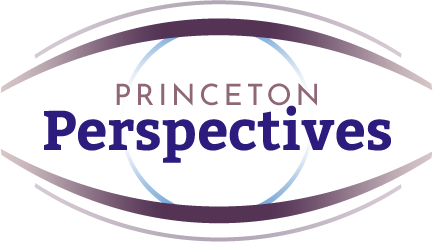
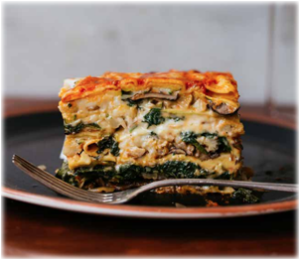 Ingredients:
Ingredients: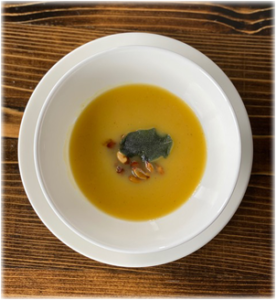 Ingredients (4-5 servings)
Ingredients (4-5 servings)
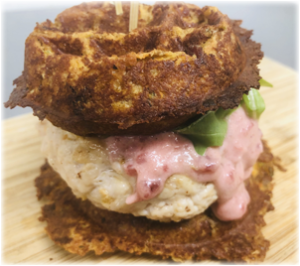 Ingredients:
Ingredients:
